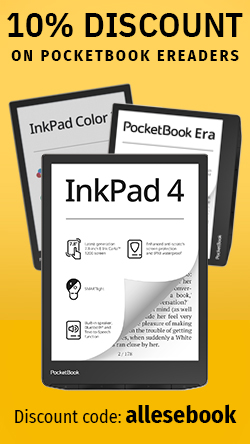Are Second-Hand eBooks Coming Soon? Exploring the Future of Digital Resale

Buying used books isn’t everyone’s cup of tea, but fortunately, it’s easily possible. For the digital book market (in Europe), there are currently no large-scale lending options or the possibility to resell eBooks. This is due to the acquisition structure of the eBook market. Most digital books do not actually become the property of the buyer; instead, only a right to use the respective eBook is acquired.
As a buyer, you don’t own the rights to the file, and you can’t (legally) lend or sell it without the explicit consent of the owner.
This practice is something the U.S. company ReDigi wants to put an end to, as registered users on their homepage can upload, listen to, sell, and buy music files. ReDigi offers the possibility to sell your own files and purchase “used” files from other users. Here’s how it works:
- During the upload, ReDigi checks whether it is a purchased/legal music file
- Once all the titles that ReDigi accepts are stored in the cloud, the user decides which titles to offer for sale
- If someone buys a title from your collection, it is removed
- A “used” music title costs an average of 60 cents
- ReDigi retains a commission on each sale
- The creators receive 20% of the proceeds – provided they have registered with ReDigi
It’s not just MP3 files that should find new owners this way; eBooks are also expected to be sold by the second-hand vendor soon. The legal situation is not yet clarified, but it seems the aim is to present the rights holders with a functioning sales platform as a fait accompli and then settle the matter in court.
This also happened with the Munich company UsedSoft. They sell second-hand software licenses and were sued by Oracle and Adobe for this. As ruled by the European Court of Justice, the resale of licenses is permissible because, with the initial sale of the copy, the original rights holder has no further distribution rights. The situation is not entirely dissimilar to the common eBook rules.
Oracle develops and distributes software, which is purchased and downloaded. The software license agreement stipulates that the customer has a right to use the program, which is, however, only for internal business use and non-transferable.
How this will ultimately apply to eBooks remains open. As reported by Buchreport, the Börsenverein expects the matter will also be resolved by the European Court of Justice – within the next two years. If the ruling in Luxembourg also favors resale, it could open up entirely new possibilities for the book and eBook market, something the unwilling rights holders might not be particularly thrilled about.
Fundamentally, there’s a risk here that customers might exploit this resale option and simply keep and continue to use the originally purchased copy.
ReDigi also intends to expand into Europe. Apparently, a beta program is already underway. By the time ReDigi becomes active here and eBooks are added to the portfolio, a court decision is likely to be expected. We’re keeping you updated. Here’s a video explaining how ReDigi works:
Thanks to firstmattheo for contributing to this article!
